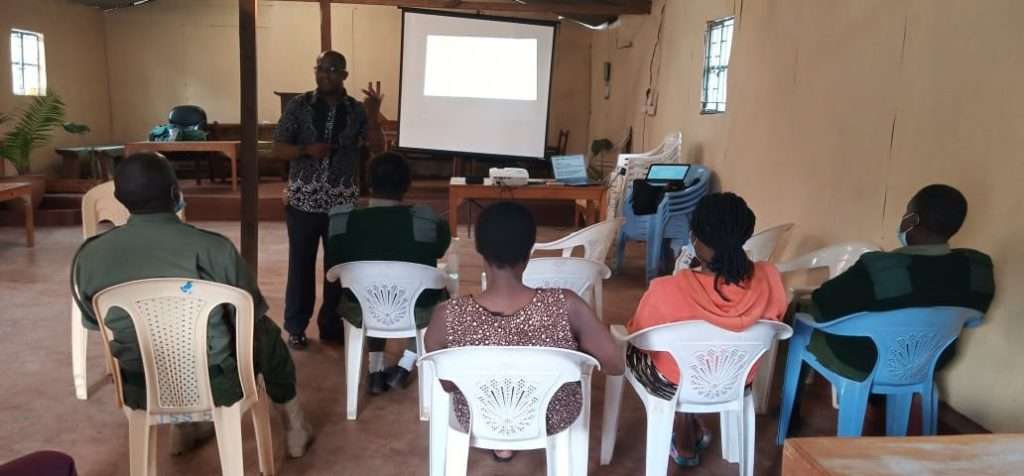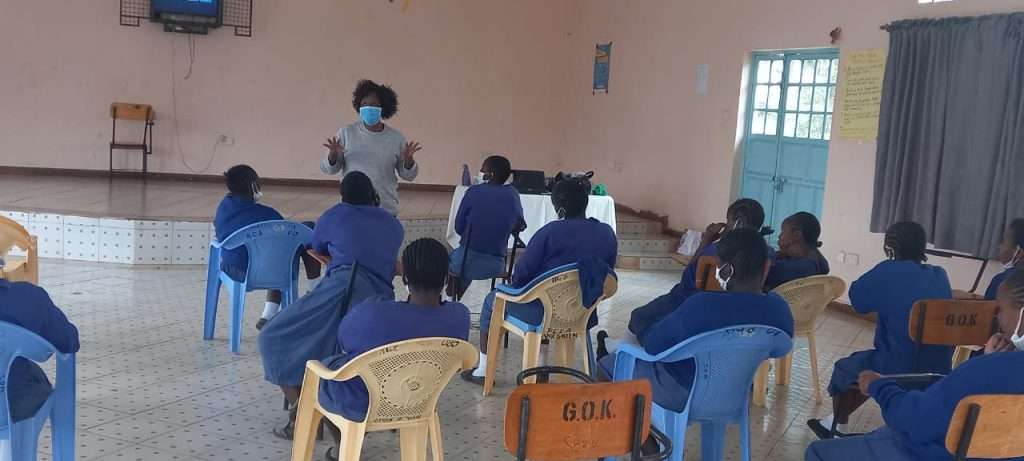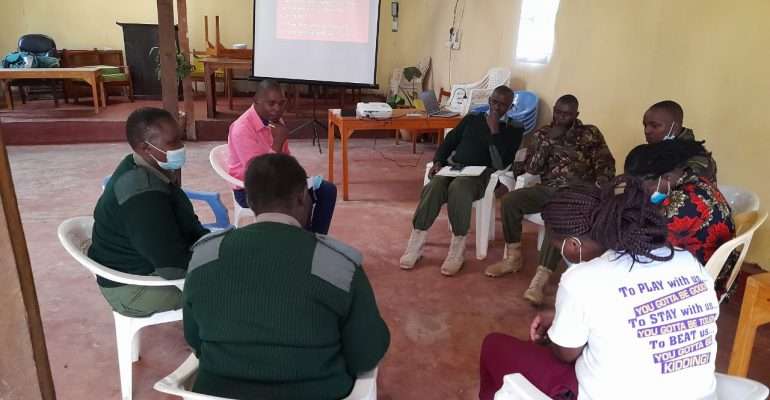“Accompanying the youth entails creating space of dialogue with them on topics or issues of concern, with the critical aim of placing them at the centre of solutions. It is about guiding the youth to be self-critical, inculcating in them the skill of analyzing the world they live in and becoming responsible for its wellbeing and betterment. Above all, it is guiding them to recognize responsibility about their own lives, and concern for others and their worlds. This means understanding the relationship between personal decisions they make and the resultant impact of the decisions. It also entails an understanding of the impact of their actions to the world they live in presently and in the future. We lead them through a conversational process that enables them to ultimately say that “positive change begins with me, and I have the capacity to engender a better tomorrow. This is driven by the AHAPPY handbook provides methodical approach which has appropriate content that supports the addressing of topics which youths or trainers propose as areas of need or interest” Pascalia Sergon, AJAN trainer breaks down the concept of accompanying youth in prisons. AJAN has been carrying out this project for about two months now.

A three-day successful Training of Trainers was carried out between 6th and 8th September 2021 at the Jamhuri Short Sentence prison in parklands Nairobi. AJAN secretariat, catechists based at the facility, and the officer in charge at the facility had held a planning meeting earlier in August.
From the planning rendezvous, one of immediate action points by the request of the prison officer was to induct the staff at the facility into the AHAPPY programme. “The initiation exercise was not only successful, but it was a huge relief for the participants. The appreciated the neutral, knowledge-oriented approach which we employed”, said Pascalia Sergon, AJAN trainer.
“The attendees enlightened us about a training they had undergone before -administered from different quarters- which had stirred some disharmony amongst them along religious lines. However, they felt that AHAPPY served them well, and boosted their toleration and harmony.” Added Pascalia.
“I deeply feel that I have not been doing enough to help those I serve to become better people. Particularly, I have not availed myself to listen to them, and have been quick to dismiss them”, an officer shared. Another staff said, “I have learnt that how we treat each other (even as staff) translates to the way we treat the prisoners we take care of. I feel challenged to be more considerate in the way I treat others and have to become a role model to the prisoners.”
One of the catechists added, “Part of my awakening after these sessions is that, for change to happen, it must start with me”. A total number of 11 people underwent the induction at Jamhuri.
ACCOMPANYING YOUTH IN PRISONS
AJAN has been accompanying youth in three prisons thus far. This is done with privacy and engagement with prisoners. So far, it has been done at the Kamae Girls Borstal Institution for girls, and the Youth Corrective Training Centre (YCTC) for boys all which are within the Kamiti Prison establishment in Kahawa West, Nairobi. AJAN’ approach is always participatory. Through AJAN educative movies and plays done by participants are used to present various life situations which young people find themselves in, enabling them to understand themselves and their world better. During participatory discussions, challenge themselves to do and act better in life, be optimistic even while in huko raia (life outside of prisons), resilience and profound hope.

During a recent at Kamae Girls which was about drug abuse (which majority of girls confined there have experiences with), one young girl in a group presentation said to the other girls “it (drug abuse) starts with a puff but leads to death. Please take this chance and chose life.”, explained Pascalia. The process at Kamae started in August this year.
“Another girl said (in my view, drug abuse is the mother of all evils!”, she explained. During the session with the boys, a young lad has this to say at the end of a session “short cuts are dangerous”. This was in reference to the tendency of the young people opting for the quick fixes of drug abuse and crime instead of having fortitude to go through life.
At Lang’ata Women’s Prison, commenced in September and so far, two sessions have been held. The youth here comprise the children of prisons officers living and serving within the prison facilities. According to the catechist, these young people are exposed to an environment that can “sometimes be carefree”, and so their “behaviour is highly influenced by what they see and hear from their environment, which is not always healthy for their moral growth.” During the AHAPPY training, the youths are put into two groups, those who are 10-13 years of age and those from 14 years to 25 years.

